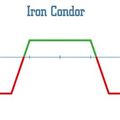Call Options: Definition, Calculation & Example
Learn what is a call option. See trading examples and understand when you should consider buying (or selling) call options.
 |
| © CreditDonkey |
There's more to buying and selling stocks than meets the eye. Enter options contracts. Now you have a chance to really increase your profits. At the very least, they help you minimize losses.
Intrigued? Read on.
Buying call options can be a great strategy for new investors. Experienced investors often take it a step further and also sell (or "write") options.
Keep reading. We will explain call options and how they work.
What Is a Call Option?
When you purchase a call option, you are paying for the choice to buy shares of an underlying stock at a specified price by a certain date. It's a contract - you're agreeing to do something or, if you let the time lapse, you'll be walking away from your initial investment.
Conversely, when you sell a call option, you must sell shares of the underlying stock at the specified price when the option is exercised. The specified price is the strike price. We'll go into details on how you determine the right strike price later.
The Obligatory Difference Between Buying and Selling Calls
The main difference between buying and selling a call is the obligation to act upon the contract.
- When you buy a call, you do not have the obligation to do anything. You can choose to let the contract expire worthless. You lose your premium paid, but that's all you lose.
- When you sell a call, you do have the obligation to act upon the contract. The ball is not in your court with this transaction. If the buyer executes or assigns the contract, you must comply. Selling calls is a riskier situation because you do stand to lose money if the price of the underlying stock's shares increases.
Who is Involved in the Buying and Selling of Options?
It is important to note that the companies of the securities for each options contract are not involved in any transaction. The buyers and sellers of options are individual investors or third parties operating on behalf of an investor.
The companies behind the underlying securities do not provide any of the cash flow for the options contracts on either end. Both parties involved in the contract are hoping to make a profit by buying or selling call options.
Index and ETF Options
You can purchase options of an underlying individual stock. But, you can also purchase options as a financial derivative of an index, such as the S&P 500 or a specific ETF. ETF options are not as heavily traded as those on individual securities or major indexes, though. ETFs focus on a specific market segment, which may or may not bring many investors.
Before you begin trading options, look at the volume of options trading going on at that time. Trading options without high volume have a lower likelihood of creating a profit. If you make traded volume a part of your factors, in addition to the bid/ask prices and option liquidity, you may have a better chance at creating a profit.
How Do You Buy a Call Option?
Notice, we said you have the "choice" to buy a stock. You are never obligated. You only want to exercise this right when you are "in the money." In other words, it's only a smart thing to do if you're getting a better deal on the underlying stock than someone who would buy shares outright on that day. In order for this to happen, the strike price must be less than the market price (what the stock is currently trading for).
Let's look at an example:
ABC stock has a current market price of $35. You can buy a call option contract with a strike price of $45. The premium on the contract is $3. It expires in 6 months. This means that within the next 6 months, if the stock price rises above $45, you'll be in the money. Because each contract equals 100 shares, you'd pay a $300 premium for this right as a call buyer.
Let's say in 5 months the stock price is $55.
You could exercise your right to buy the stock for $45. It would cost you $4,500. You would make $5,500 in the current market, selling it right away. It looks like you'd make $1,000 in profit, but remember, you paid the premium for the right to buy the underlying shares. In reality, you'd make $700 as a call buyer, which is the $1,000 profit minus the $300 premium.
Now let's pretend the stock didn't rise. Instead, it fell to $30. You still hold the option to buy the stock at $45. But why would you? Instead, you'd let the contract expire worthless. You'd be out $300 as a call buyer. But if you had bought the stock outright, you'd lose more.
It would have cost you $3,500 for the initial stock. If the current price is $30, your shares would be worth $3,000. You'd be out $500.
What Are the Benefits of Buying a Call?
You'll realize two main benefits as a call buyer: unlimited profit and minimal risk. Given how scary investing can be, these are good things!
The strike price on the call limits the amount you can pay for shares of the underlying stock. It doesn't limit how high the market price can soar. The profits are limitless, as we showed you above.
The risks you incur are known from the start. It simply equals the amount of the premium you paid for the right to buy the underlying shares. Remember, you multiply the cost of the contract by 100. This gives you the total premium for the 100 shares. You only risk a loss when the market price doesn't increase as you thought it would before expiration.
How Can You Sell Call Options?
An investor selling a call option is known as the writer. The writer is on the opposite side of the equation. He wants the stock price to fall. This way, the contract expires "out of the money." The seller walks away with the premium in his pocket.
Sellers can sell calls two ways: covered or uncovered (also known as "naked").
When an investor writes a covered call, it means he owns at least 100 shares of the underlying stock. When the buyer exercises his right to buy the stock, the seller has possession of it.
An uncovered, or naked, call means the writer doesn't have possession of the 100 shares of the underlying stock. If the buyer exercises his right to buy the stocks, the writer must buy the stocks. The writer could incur an even greater loss. He must first buy the stocks at the current market price. He then sells them to the buyer (holder) at the strike price.
The seller's losses are offset by the premium collected for the options contract.
John purchases 100 shares of ABC stock at $30 per share. This costs him $3,000. He then immediately writes a call option with a strike price of $40. It has a 3-month expiration and a premium of $3. Right away, John makes $300 from the buyer (holder) of the options contract.
Before the contract expires, the market price of ABC stock rises to $44. The buyer exercises his right to buy the stock for $40. The buyer pays John $4,000. John still makes a profit of $1,000, since he only paid $3,000 for the stock initially. John also made the $300 premium. In the end, John walks away with $1,300. If John didn't write the call, he could have made $1,400.
Now, let's look at an uncovered call.
John writes the same options contract for ABC stock. It has a strike price of $40 and an expiration of 3 months. The premium is still $3. The buyer pays John $300 for the options contract. Before expiration, the market price hits $45. The buyer executes the contract.
John doesn't have possession of the stock. This means he must purchase the stock at the current market price of $45. John pays $4,500 for the stock. He then sells it for $40 per share. He collects $4,000. On paper, it looks like John lost $500. But he collected the premium of $300. John actually made $200 on the deal.
Of course, the hope is that you'd make more of a profit than John. We used these figures for simplicity's sake.
Aside from the strike price, the option expiration date is the next most important factor in options trading. Traders often wait until the option expiration date to decide whether to exercise an option. However, if you miss that date, you lose your chance to execute your contract. Options contracts are commonly written in 3, 6, 9, and 12-month increments. However, you can find various option expiration dates if necessary.
What Are the Benefits of Selling Calls?
Selling calls isn't for novice investors. If you have experience, though, it can be lucrative. If you're pretty good at predicting the way the market will go, you can make a decent profit.
Right away, you decrease the amount paid for the stock ownership as you collect the premium for the contract. The rest depends on how the market reacts:
- If the underlying stock's price never rises above the set strike price, you walk away with the premium and the contract expires worthless. The buyer loses his premium, like we discussed above. As the seller, you keep the premium as your profit.
- If the underlying stock price rises above the strike price, you'll sell the stock. You make the difference between what you paid and sold the stock for, plus the premium you received.
- Selling options either covered or uncovered can be a way to generate a steady stream of income. You hedge your losses by creating a steady stream of income with the premiums collected. It's not a 'get rich quick' scheme, but done right, it may help you increase your profits.
If you decide you don't want to risk the option contract any longer, you can buy it back. You won't walk away with a profit. But you do eliminate your risk.
What Is the Risk of Selling Calls?
Of course, there's a risk in selling calls, just like any other investment. However, the risk is the same you'd experience if you bought the stock outright. If the market tanks and the stock price falls, you lose money. If you can ride it out, you might still come out ahead. If you are forced to sell, you'll take a loss.
Writing a call doesn't make your loss any worse. In fact, it limits your loss by offsetting it with the premium paid to you.
Don't Forget Commissions
None of these examples included commissions. Generally, the amount you have to pay a broker to help you execute transactions with options contracts is minimal. But commissions are part of the deal. If you are a very active trader, be sure to choose a low-commission broker. If you are a new trader, focus on a broker that will provide you with the most support.
The Bottom Line
Buying and selling calls can help you hedge against your losses. With a little experience, writing calls can be a way to make money right away via the premiums.
Many investors write calls to minimize their losses. It helps force them to sell when the underlying stock hits their targeted price. Either way, you can make decent profits. Remember, diversifying your portfolio is the best way to maximize your profits. Mixing in a few options contracts with all your other investments can help give you the diversification and protection you need.
Write to Kim P at feedback@creditdonkey.com. Follow us on Twitter and Facebook for our latest posts.
